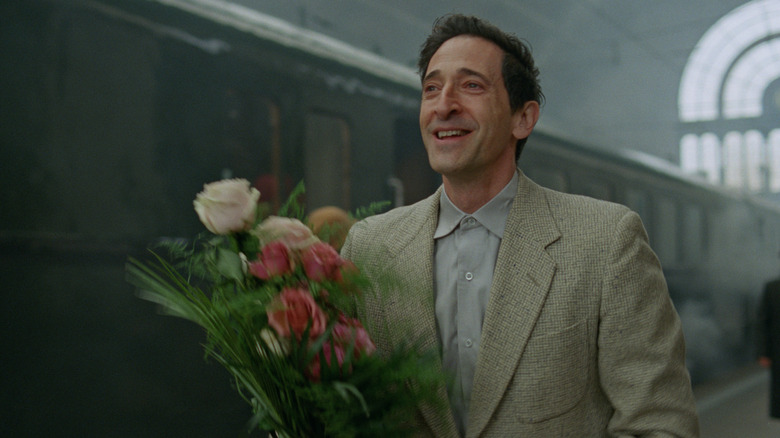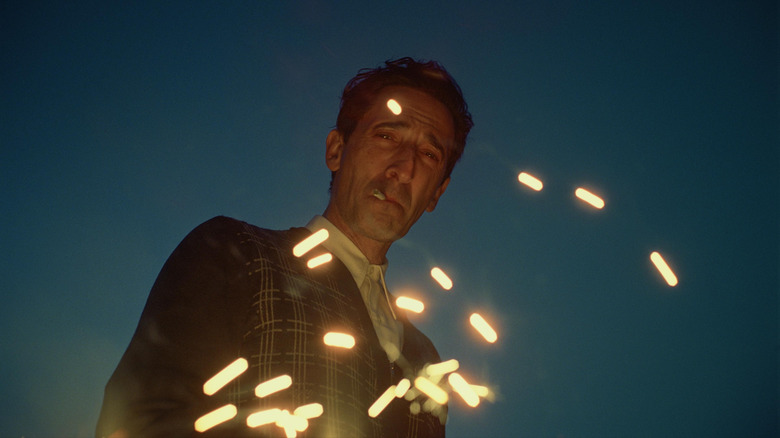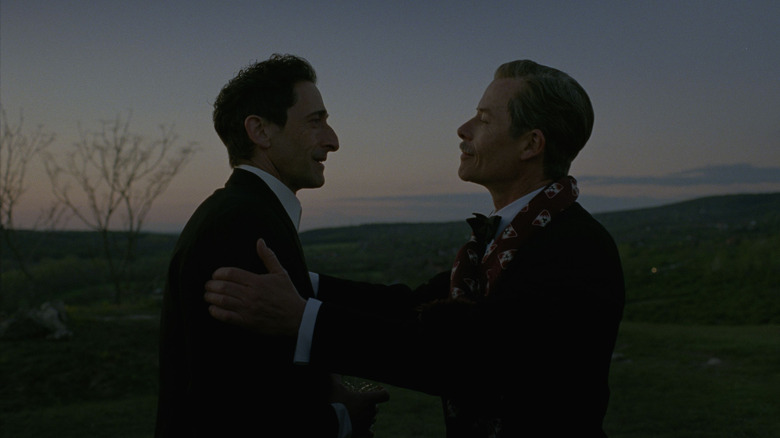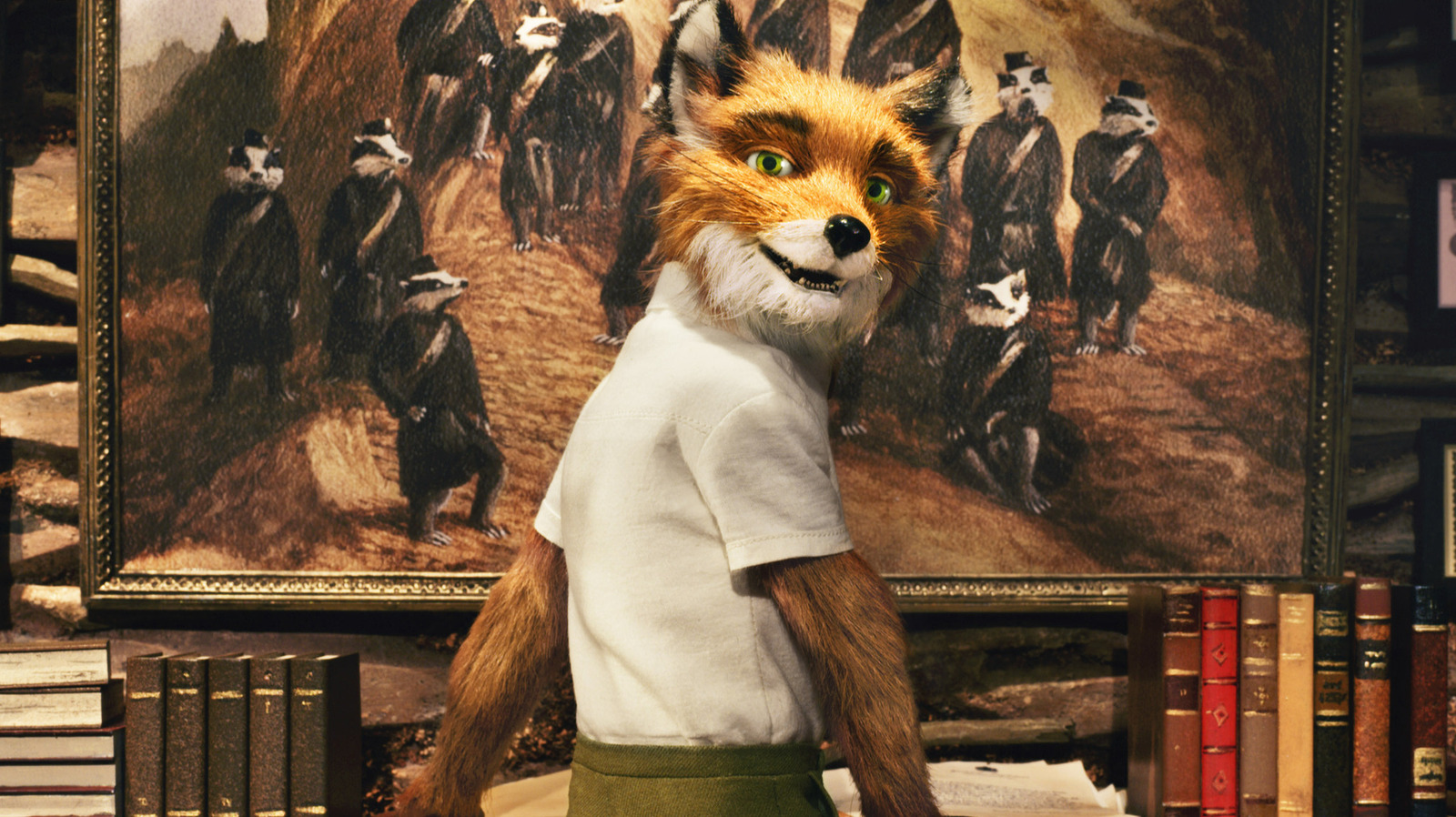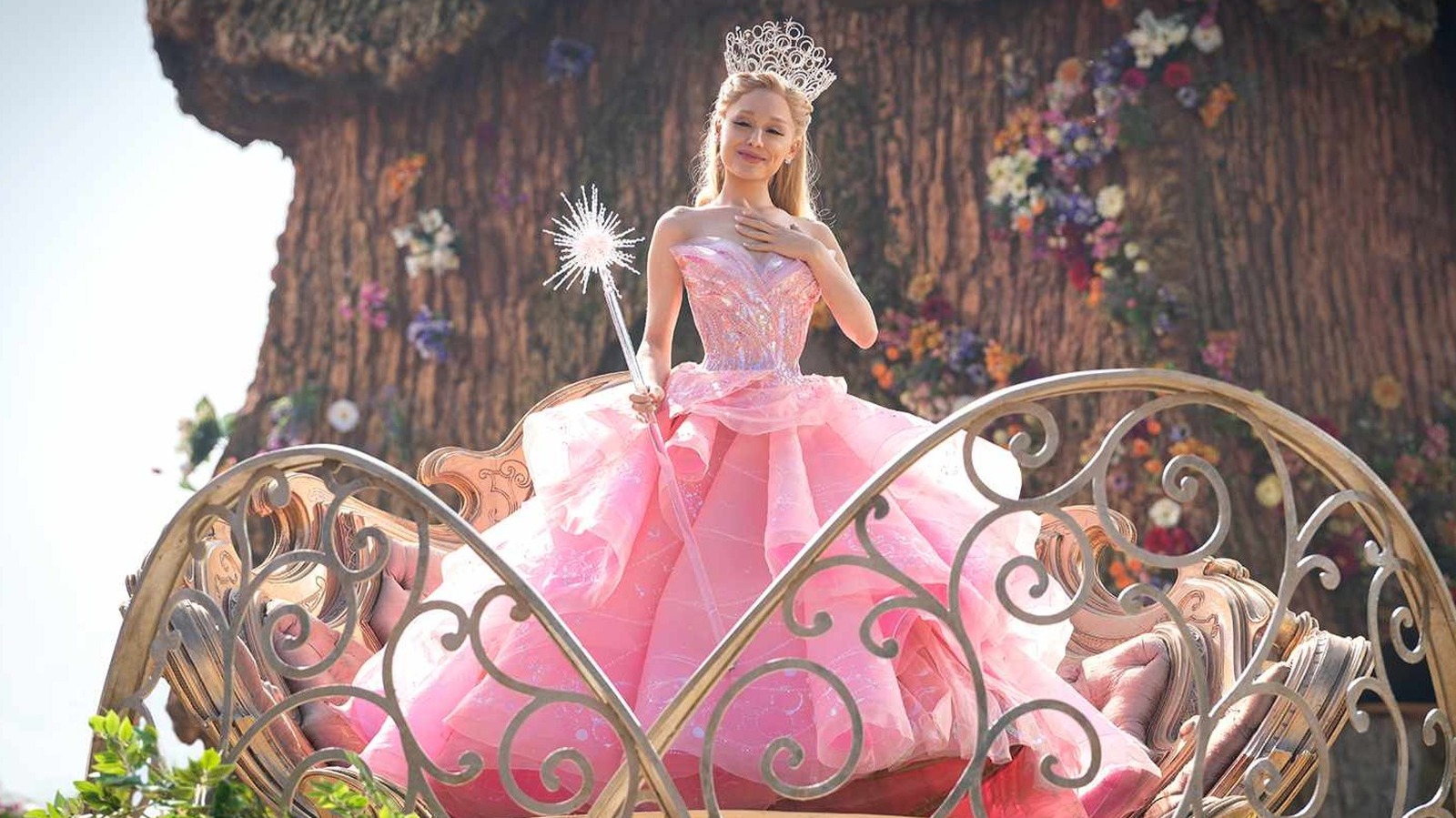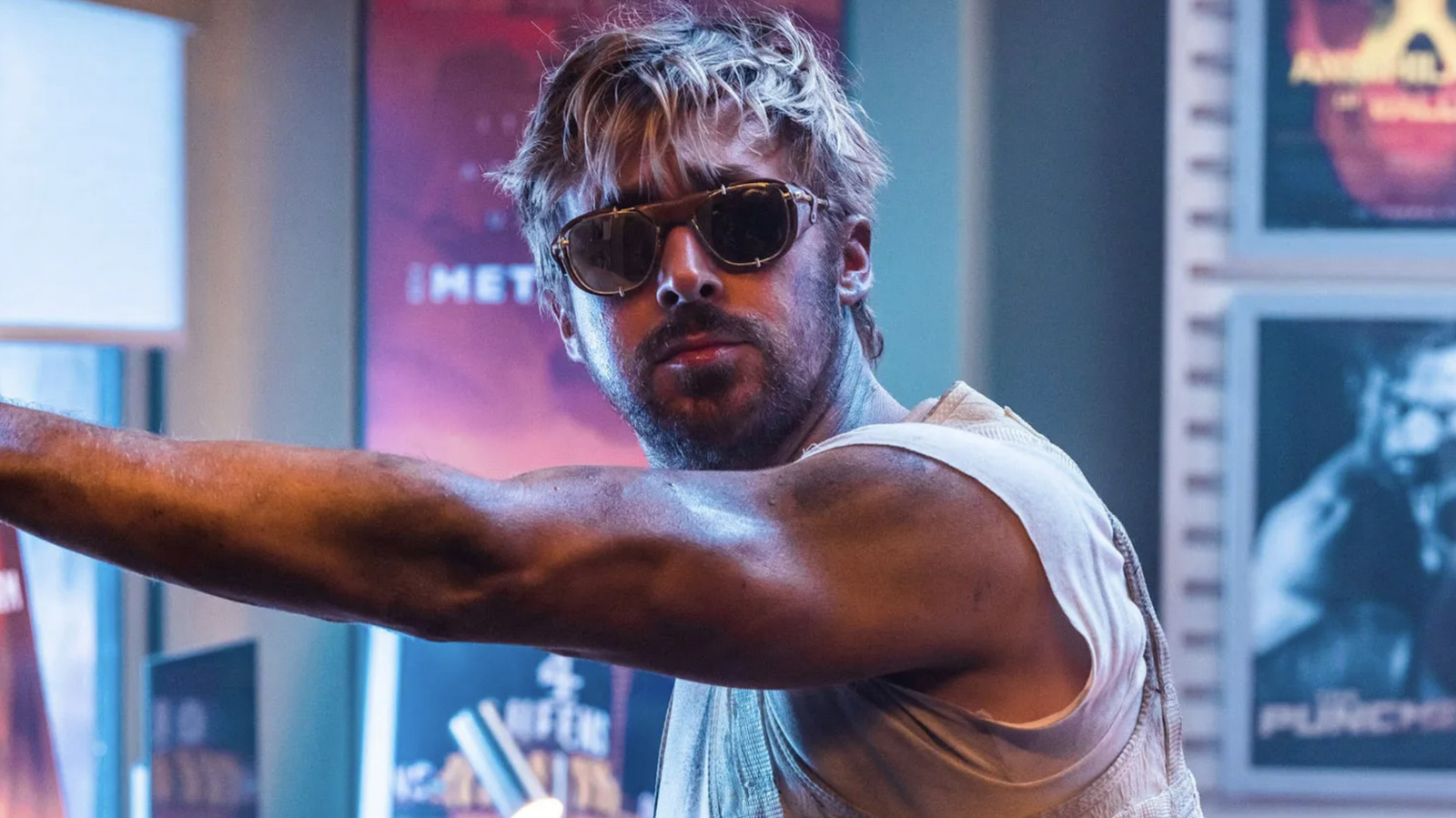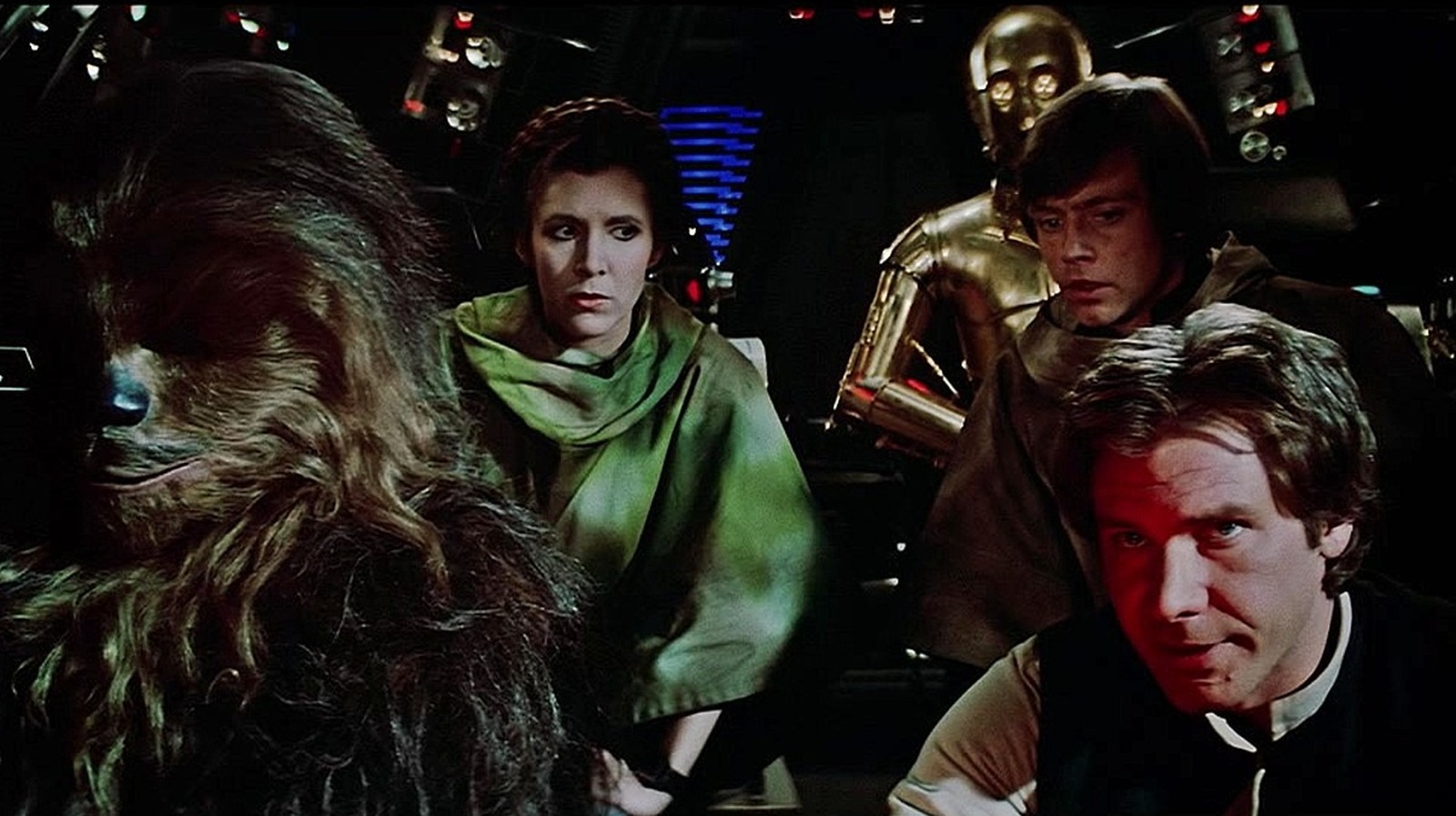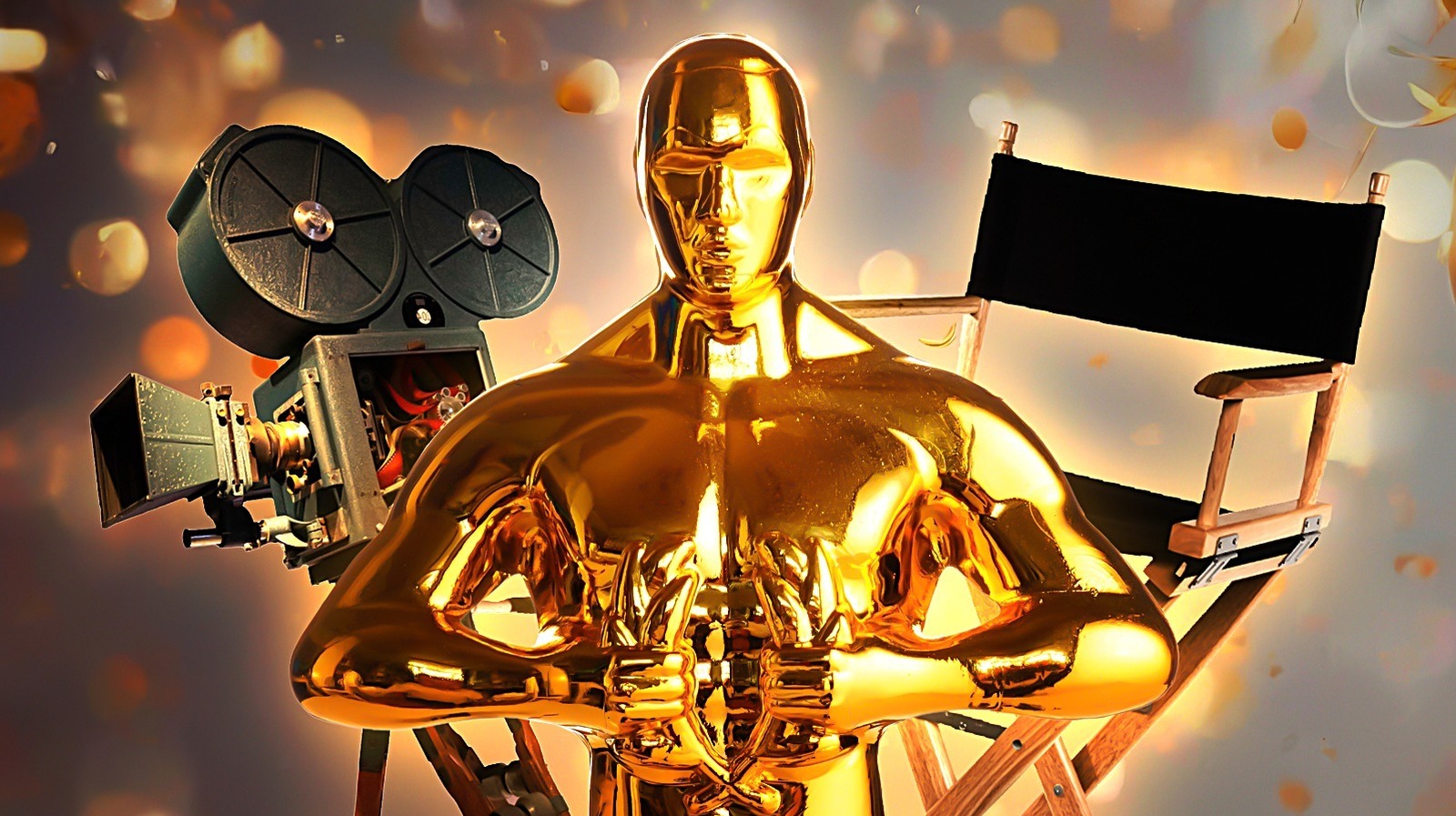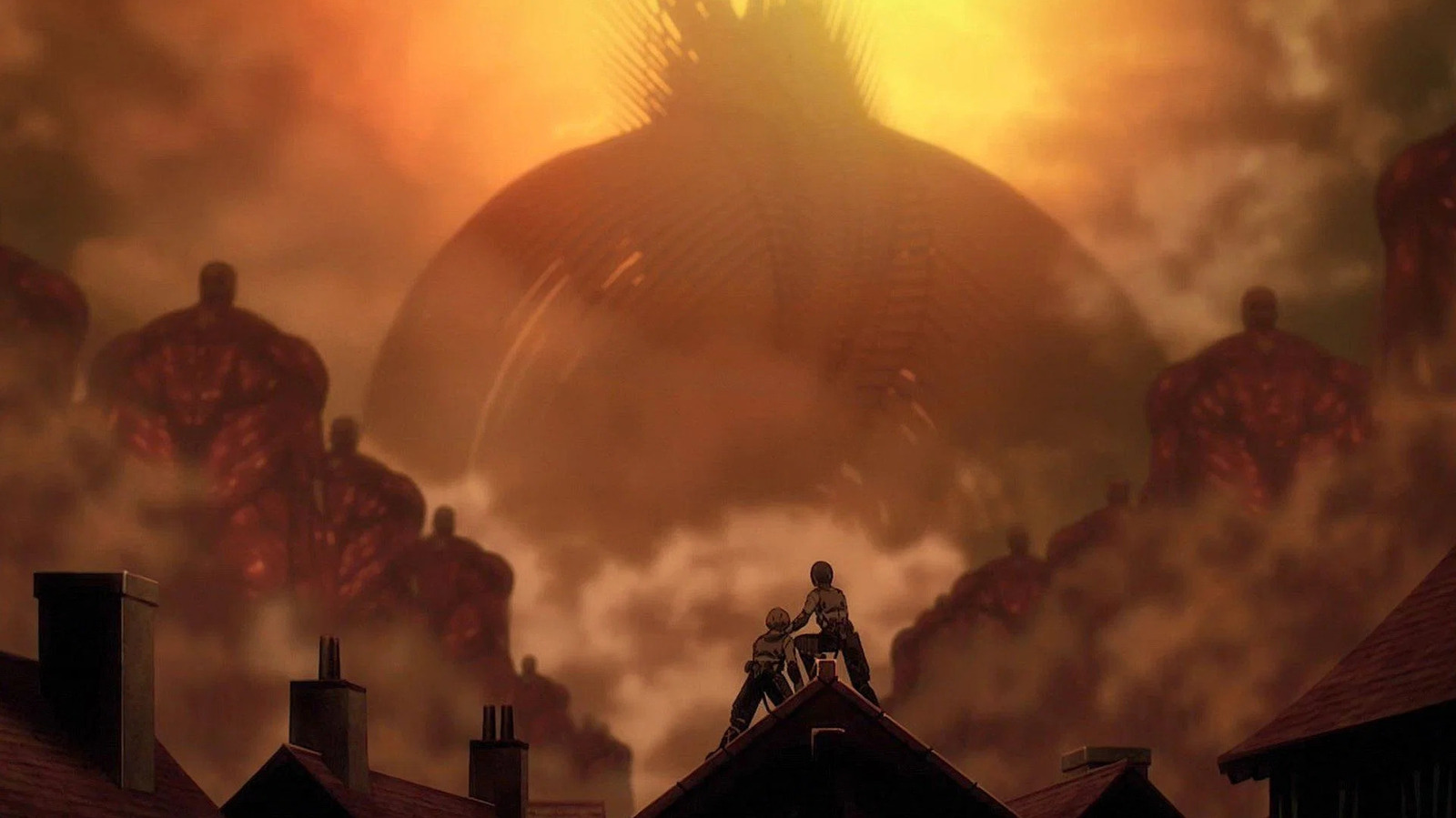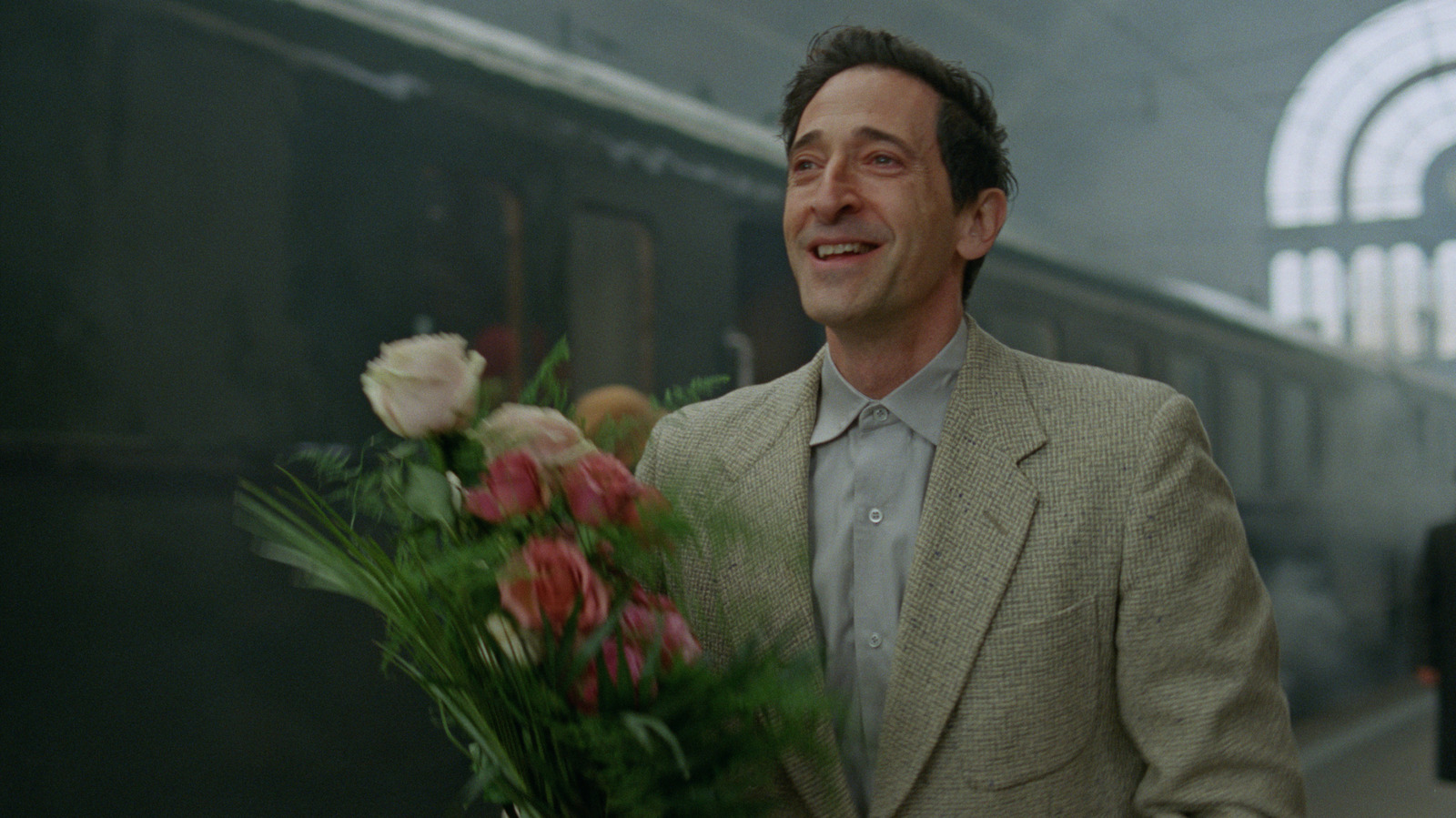
Like Rome, no architectural wonder was ever built in a day … but an AI controversy currently embroiling social media needed only a few hours to imperil one of the year’s biggest Oscars frontrunners. “The Brutalist” easily stands as one of 2024’s best movies, as /Film’s Chris Evangelista reviewed for us. Directed by Brady Corbet from a script by himself and Mona Fastvold, the 215-minute epic (don’t worry, there’s a brief intermission built into the film) tells the story of fictional Jewish architect László Tóth as he emigrates from Hungary in the aftermath of the Holocaust to the United States. Hopelessly separated from his wife Erzsébet (Felicity Jones) and left almost entirely on his own in a strange and hostile country, he embarks on a grueling odyssey to make a living as one of the most brilliant architects of his time … if he can only find someone (Guy Pearce’s opportunistic patron Harrison Lee Van Buren, Sr.) who recognizes his talents and plucks him from obscurity.
“The Brutalist” is nothing short of a towering, essential work that speaks directly to events of today – but all of that only makes this AI-related development all the more disappointing.
Unless you’ve been living under a rock for the last few years, the AI arms race in Hollywood has taken nobody by surprise and “The Brutalist” has become the latest title to fall under its target. Those of us staunchly opposed to the fancy tech remain so because of its exploitation of artists and creatives, concerns about rampant plagiarism, the impact on the environment, and much more. In this case, various users on social media drew attention to official studio press notes and an interview that revealed the 2024 film made use of generative AI for a few specific purposes: to depict architectural blueprints and drawings during a key moment in the final act, and more broadly to enhance Brody’s Hungarian accent work. Here’s why the revelation has many film fans in an uproar.
The source — and timing — of The Brutalist AI news raises questions
Who doesn’t love some good ol’ fashioned Oscars drama? Well, speaking for myself, fans of “The Brutalist” probably could’ve done without this recent bombshell — especially since the entire movie is about the painstaking, backbreaking, and utterly all-consuming effort it takes for artists to create a legacy of their own. The idea that those behind this story in particular took such blatant creative shortcuts is almost too ironic for words.
Still, there are a few question marks hanging over these reports that are worth digging into. First and foremost is the issue of where exactly this information came from in the first place. The initial posts on X (formerly and, let’s be real, still commonly known as Twitter) pointed to indie studio A24’s press notes, which were paraphrased and republished by RedShark News. Considering that the actual copy of this article contains several robotic-sounding and nonsensical phrases (such as a sentence referring to “The Brutalist” as, and I quote, “one of the movies of the year”), it didn’t take long for many users to suspect that the article itself was “written” with the use of AI. However, the outlet goes on to claim that they interviewed “The Brutalist” editor Dávid Jancsó about the decision to use AI on the production overall, which entailed the program known as Respeecher in order to “enhance” Brody’s pronunciation of the notoriously difficult Hungarian language and accent.
It’s also worth pointing out that, as noted by film writer and The Ringer podcaster Joanna Robinson, the timing of this information certainly seems curious. Awards campaigns oftentimes have much to do with financial resources and politicking, as opposed to the actual quality of any given film. As referenced in Robinson’s post, disgraced industry mogul Harvey Weinstein was infamous for swaying the Oscars season in favor of his own movies at Miramax (via BBC). With the Academy Awards ceremony set to be held in March of 2025 and “The Brutalist” perceived to be leading the pack in several important categories (namely Best Picture and Best Actor), it’s worth asking which studios would most benefit from a last-minute controversy possibly hurting the chances of a frontrunner.
Is The Brutalist’s use of AI a setback for artists?
If there’s any main “villain” in “The Brutalist,” it comes in the form of Guy Pearce’s immeasurably wealthy Harrison Lee Van Buren, Sr., a man who claims to be a patron of the arts despite possessing very little creative instincts whatsoever. When he hires László Tóth to design and build a gaudy community center that will stand as a monument to his legacy, his promises of financial backing soon devolve into outright manipulation and abuse. Again, if the metaphor at the heart of this AI controversy wasn’t already obvious enough, the film gods sure found the bluntest possible way to ram this point home.
The biggest concern with “The Brutalist” and its use of AI has to do with how it influences — and downright changes — the performance of Adrien Brody. The source article alleges that both Brody and director Brady Corbet were “fully onboard” with using Respeecher to tweak his voice work, meaning that the all-important issue of artist consent was fully addressed by the creative team (as outlined by the provisions gained from the SAG-AFTRA strike) from a legal point of view. That said, this does nothing to affect the ethics of using machine-learning algorithms to change something as fundamental to film as dialogue and speech. If Brody were to win Best Actor (an honor he has already won among various critics groups, mind you), then we have to wrestle with how much of his performance was artificially inflated … not entirely unlike athletes using performance-enhancing drugs to make their way into the record books. Or does the use of AI amount to something much more familiar, like the prosthetics and makeup used to elevate Sebastian Stan’s work in “A Different Man,” as a recent example?
Although this specific instance of AI didn’t replace any actual artist’s job, once must wonder whether the profession of accent coaches and similar positions could end up falling by the wayside in favor of a cheap and quick fix. Corbet, for his part, tried to allay such concerns in his statement about the situation (via Deadline):
“Adrien and Felicity’s performances are completely their own. They worked for months with dialect coach Tanera Marshall to perfect their accents. Innovative Respeecher technology was used in Hungarian language dialogue editing only, specifically to refine certain vowels and letters for accuracy. No English language was changed. This was a manual process, done by our sound team and Respeecher in post-production. The aim was to preserve the authenticity of Adrien and Felicity’s performances in another language, not to replace or alter them and done with the utmost respect for the craft.”
As for the film’s other uses of generative AI, Corbet stated:
“Judy Becker and her team did not use AI to create or render any of the buildings. All images were hand-drawn by artists. To clarify, in the memorial video featured in the background of a shot, our editorial team created pictures intentionally designed to look like poor digital renderings circa 1980.”
The Brutalist isn’t the only Oscars contender this year to use AI
Adding even more chaos to the mix is the fact that, incredibly enough, “The Brutalist” is hardly the only movie in the thick of the Oscars race to resort to AI. Users on social media (such as critic Isaac Feldberg) were quick to point out that rival awards darling “Emilia Pérez” similarly used AI tools like Respeecher in order to boost star Karla Sofia Gascón’s vocal performance and allow her to sing various songs “outside of her vocal range.” If anyone’s going to point fingers at one major film for its controversial reliance on AI, then it’s only fair to apply those same standards across the entire board. (For whatever it’s worth and in the interests of full disclosure, I reviewed “Emilia Pérez” for /Film rather negatively here.)
Of course, we’ve seen more and more films in the last few years incorporate AI into production. Similar controversies dogged various titles such as the HBO series “True Detective: Night Country” and especially the horror film “Late Night with the Devil.” But, increasingly, acclaimed directors ranging from David Fincher to James Cameron have admitted to using the technology to certain extents on their own films. For better or worse, AI has already proliferated throughout the industry and all signs are pointing to this genie staying out of the bottle.
Does this suggest that we ought to sweep this “The Brutalist” discourse under the rug? That’s, as always, in the eye of the beholder. Proponents defend this as hardly a big enough deal or enough of an infringement on artists’ rights to merit as much controversy as it already has. Dissenters, meanwhile, would seem to have enough evidence to indicate that this is yet another step taken on a slippery slope that could lead to greater ramifications to come. Whatever the case may be, the noise surrounding AI isn’t quieting down anytime soon.
“The Brutalist” is currently playing in theaters.
